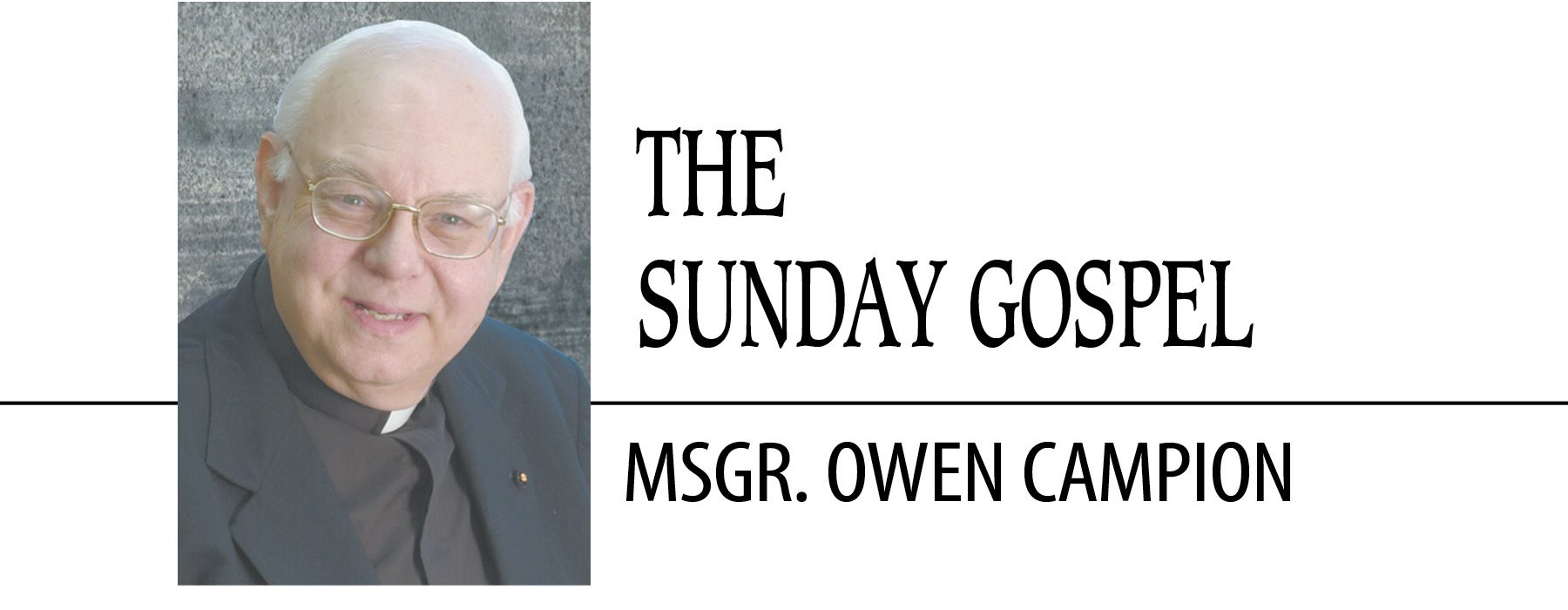February 1, 2020 // The Sunday Gospel
Recognizing Jesus and understanding God’s will
The Presentation of the Lord
Luke 2:22-40
Under other circumstances, the liturgy for this weekend would be that of the Fourth Sunday of Ordinary Time. Instead, however, this weekend the Church celebrates the feast of the Presentation of the Lord.
Any interruption in the usual course of the liturgical season is a lesson in itself. The Church tells believers that the feast contains such an important message and commemorates such a person or event because it conveys a message or reality helpful to us as we aspire to holiness. This is occurring with the Church’s emphasis on the feast of the Presentation of the Lord this weekend.
By presenting their newborn child in the temple, Jewish parents in effect consecrated the child to God. It was more than just a tradition or charming gesture. It placed the infant fully within the stream of life, and identity, among the Chosen People. The child shared in God’s gift to the people of Israel, beginning with their knowing God and the promise of salvation. Presentation also placed the child in the mission of God’s Chosen People, to adore God above everything and to obey God in all things. In this spirit, Mary and Joseph presented Jesus in the temple.
The first reading is from the Book of Malachi. Through this prophecy, God promises the Chosen People that they will receive a messenger, divinely sent and empowered, perfect and powerful, sent to reconcile God and the people.
For the second reading, the Church offers us a passage from the Epistle to the Hebrews. No work in the New Testament is more eloquent in its testimony to the identity of the Lord Jesus. This reading marvelously discloses that, in what theologians call the Incarnation, Jesus shares with people everything — including Himself, His power, and the divine life dwelling in Him.
The final reading is from St. Luke’s Gospel, the only source in the Bible of this story of the Presentation of the Lord. Several strong lessons occur in the reading.
First, Mary and Joseph participated in this revered Jewish custom by presenting Jesus in the temple. This reveals much about them. What is learned from this revelation? They were devout. They obeyed God. They saw themselves as members of the Chosen People and privileged to be servants and bearers of God’s truth and goodness.
Next, they encounter Simeon, “righteous and devout” as the Gospel describes him. He sees in the tiny Jesus the Messiah, the future and the life of the world. Simeon was quite specific. Jesus was unique.
Simeon’s great exclamation of faith is the Church’s hymn sung every day in Night Prayer in the Liturgy of the Hours.
Predicting the vital role ahead for Jesus, Simeon also warns Mary that she will suffer as she watches the life of her Son unfold.
Then, Anna enters the scene. She is a “prophetess,” according to Luke, meaning that she sees everything in the context of God and of obedience to God. She is elderly and a widow. At the time, longevity implied wisdom. Widowhood meant time, free of domestic responsibilities, to concentrate on God. Anna sees Jesus as the hope and glory of the people.
Reflection
The Liturgy of the Word for this feast of the Presentation of the Lord is very practical for anyone believing in Jesus and seeking salvation. Simeon and Anna recognized Jesus and saw a role hardly suggested simply by the presence of an infant. The Gospel is clear. They are devout. They are wise. Understanding God’s will, and accepting limitations in understanding it, come only to the good and the sincere.
Finally, Simeon’s warning to Mary is telling. In a world of sin and hardship, no Christian can expect a life without demands and dilemma. Mary was no exception. Nevertheless, she was faithful.
The best news. Delivered to your inbox.
Subscribe to our mailing list today.






